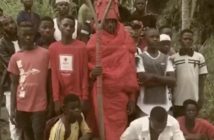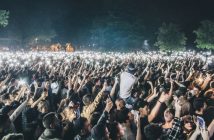In a nation which applauds freedom of speech, we sure have gone to extreme lengths to soften and quieten it. The material no longer belongs to the artist; it has taken a life of its own. With commentary trying to justify the use of racism by hating on white (Afrikaaner) people, Dookoom’s Larney Jou Poes video and lyrics have played host to social media contact, out of context, pulling it from its chord of inception. I cannot begin to understand what their rationale or even awareness of the reaction the video would get when IOT Records and Dookoom put out this track.
Constitutional Court Judge Yvonne Mokgoro wrote that “freedom of expression is one of a web of mutually supporting rights. It is closely related to freedom of religion, belief and opinion… the ability to form and express opinions, whether individually or collectively, even where those views are controversial. The corollary of the freedom of expression and its related rights is tolerance by society of different views. Tolerance, of course, does not require approbation of a particular view. In essence, it requires the acceptance of the public airing of disagreements and the refusal to silence unpopular views.”
If the web has a place for porn, cyber bullying, snuff and gore, then there is a home for anger and aggression. If the constitution has outlined no resistance to freedom of speech, whether it comes in a form of a controversial or aggressive nature, then who are we, the public, or the Human Rights Commission to suppress it.
The light cannot live without the dark. We are living in a nation rich in history and culture, and there is bound to be resistance and revolution. In this case, the video refers to the violent farm worker strike in Western Cape, which started as a reaction to the slave labour conditions the workers were experiencing. In a feature article written by former Chairperson of the Free Market Foundation, Herman Mashaba, ‘100 years of legislated poverty’, he explains that each individual worker has the right to decide for themselves what wage or working conditions are acceptable. In his approach to labour laws, he alludes to how our Land Act deprives black South Africans not only of their property rights, but also of important contractual rights. Any white landowner, who partnered with or sold land to a black person, was punished.
If I was excluded from owning or managing land in South Africa because of the colour of my skin, I would also revolt. Finally, someone is getting angry about the state of our nation and the people who inhabit it. We can no longer have an apathetic mind-set, we behave how we see fit, and if fed up, consequences are an afterthought. This video tells a story: he stands with the workers, even in their divide against their bosses. Yes, it is worrisome and extreme that their solution is burning the farms and killing the farmers, but their livelihoods are in constant comprisal and without this extreme activity and uproar, there would be no change.
Artists are given free reign over their material and commentary. Dookoom was signed for his approach to the world. Nothing other than who he is and how he behaves is what has gotten him to this platform, and IOT records were, and are aware of this when he was signed. There is no need for secular boundaries; Dookoom’s lead singer, Isaac Mutant is no worldly character- he hails from the Cape Flats and is proud of his heritage. This is evident in his unity against the abuse of farm workers. We don’t have to choose to support or condemn it; we can decide to move forward with its progressive nature and allow it to expose the inner details that live in South African society.





